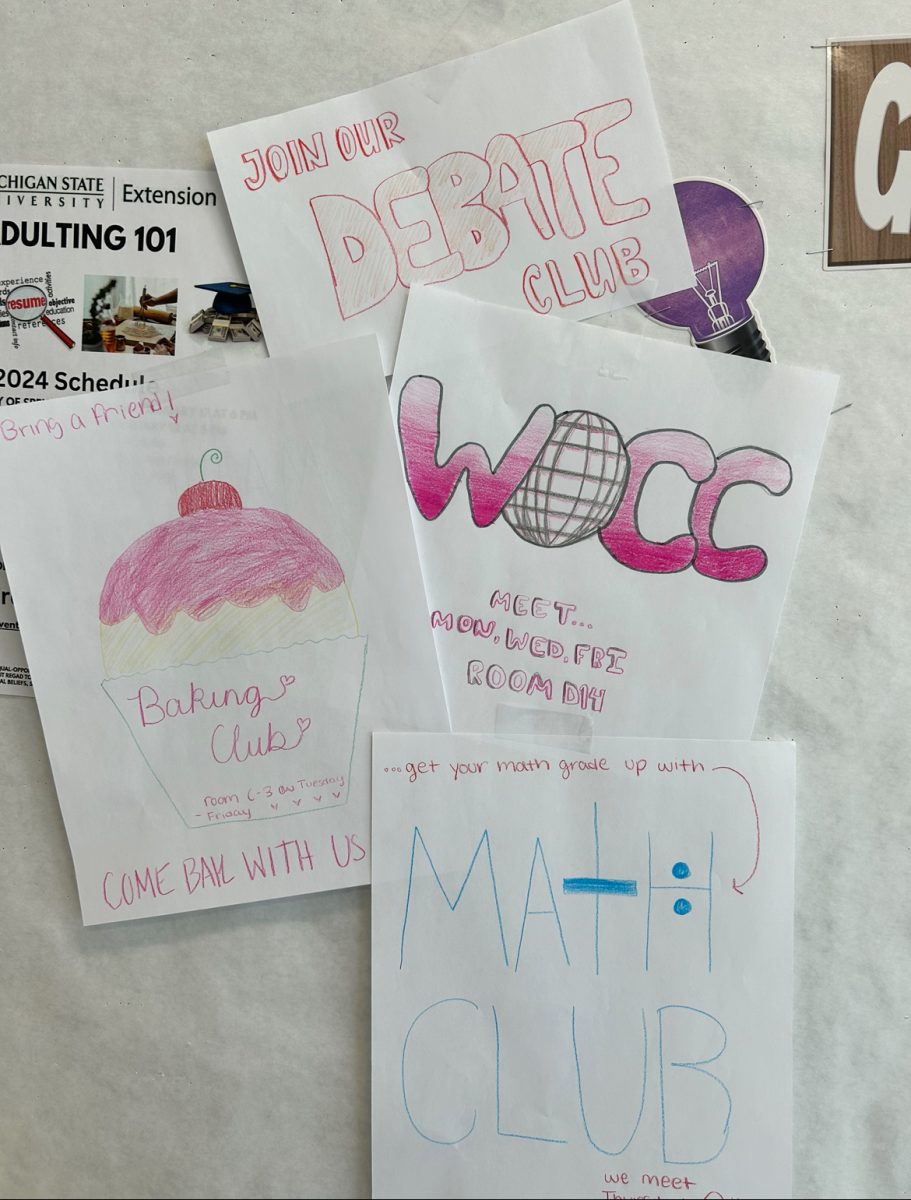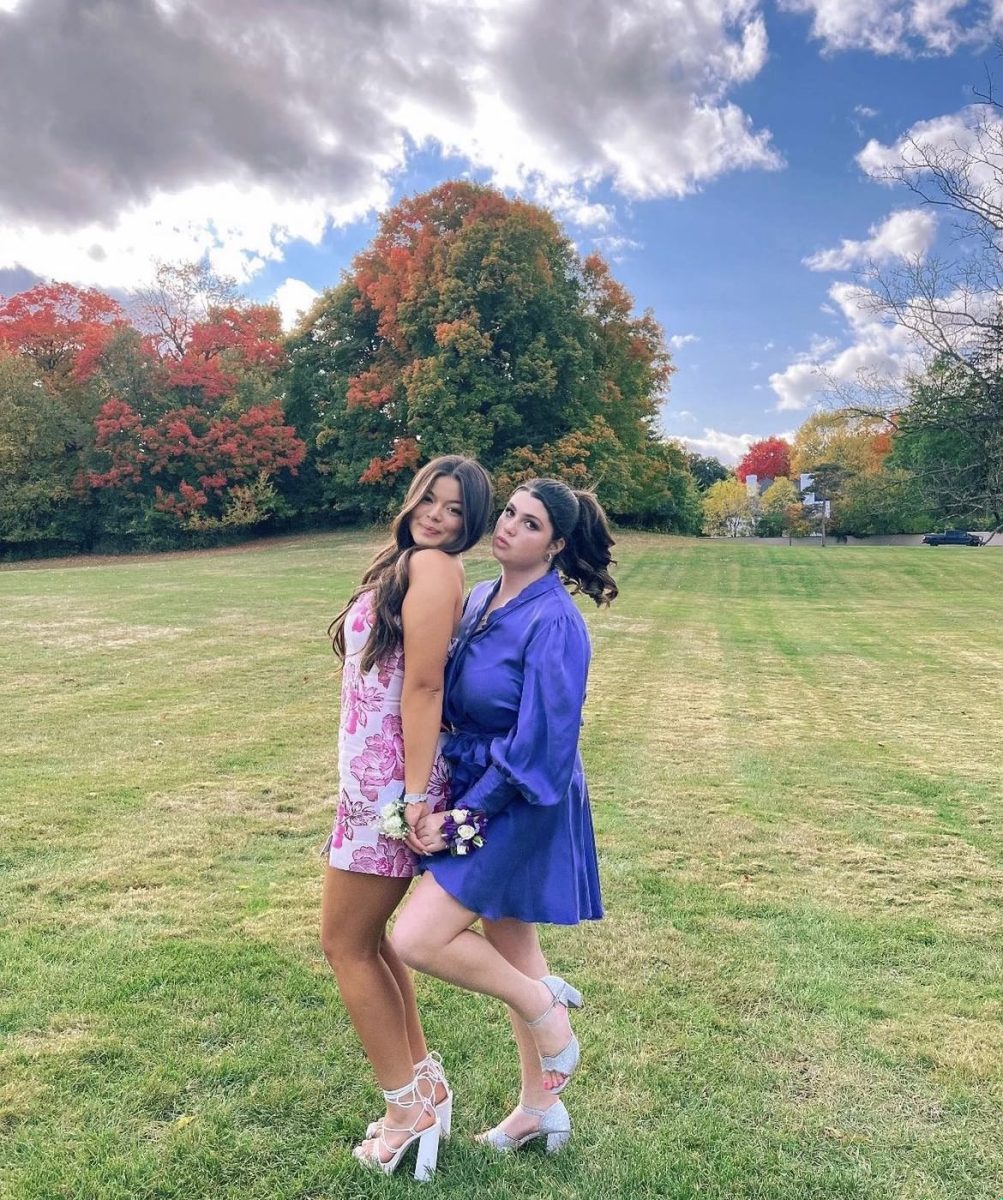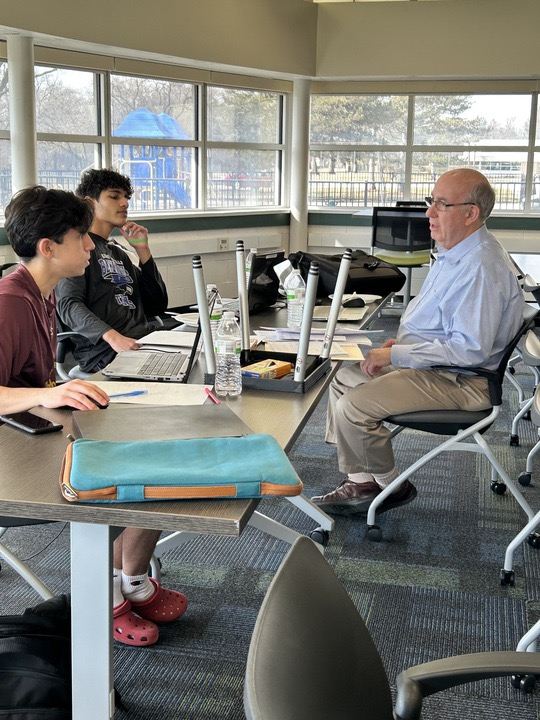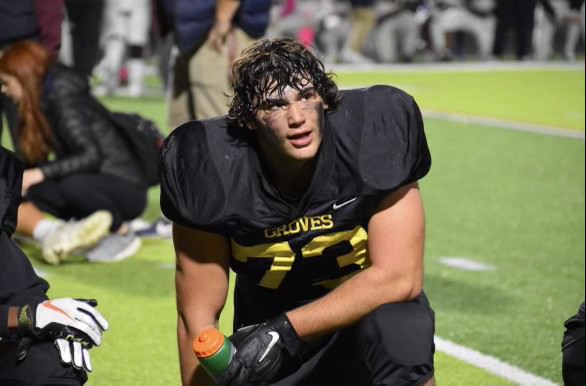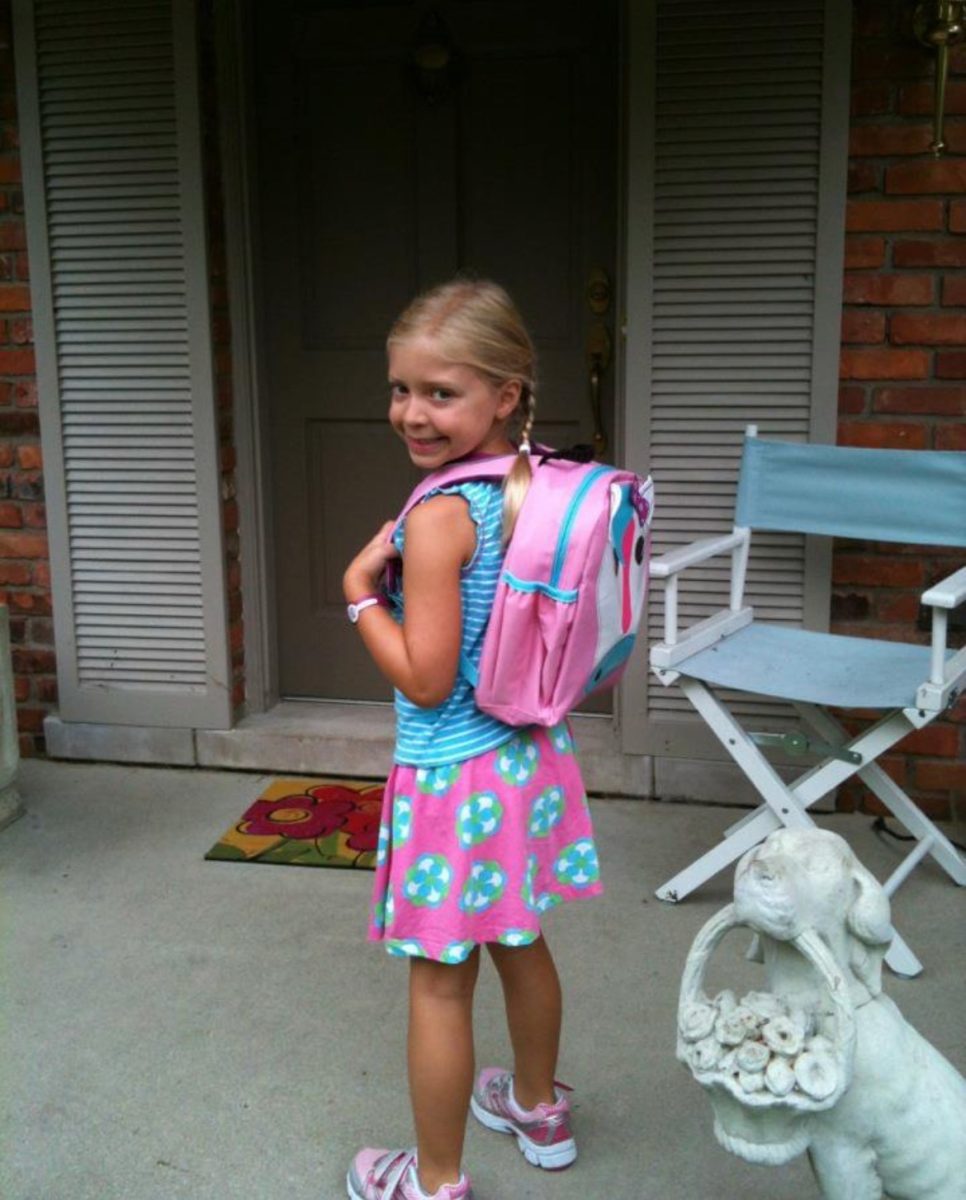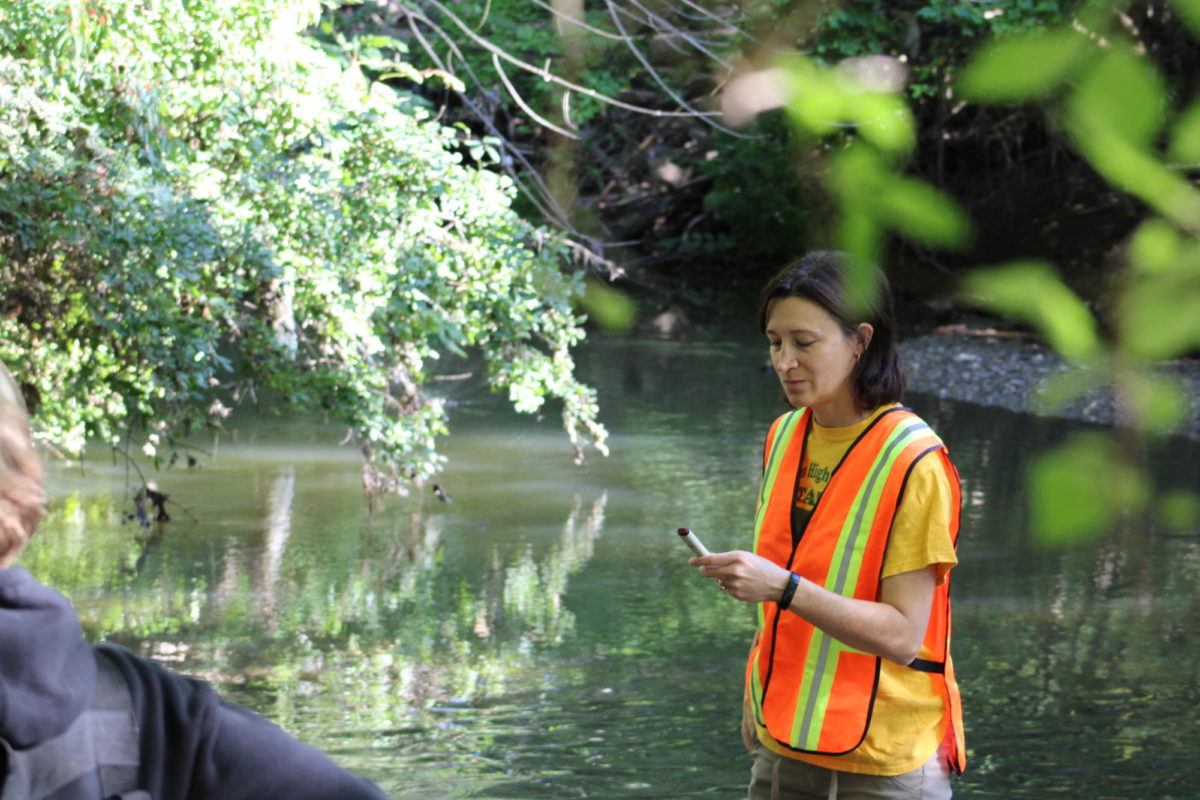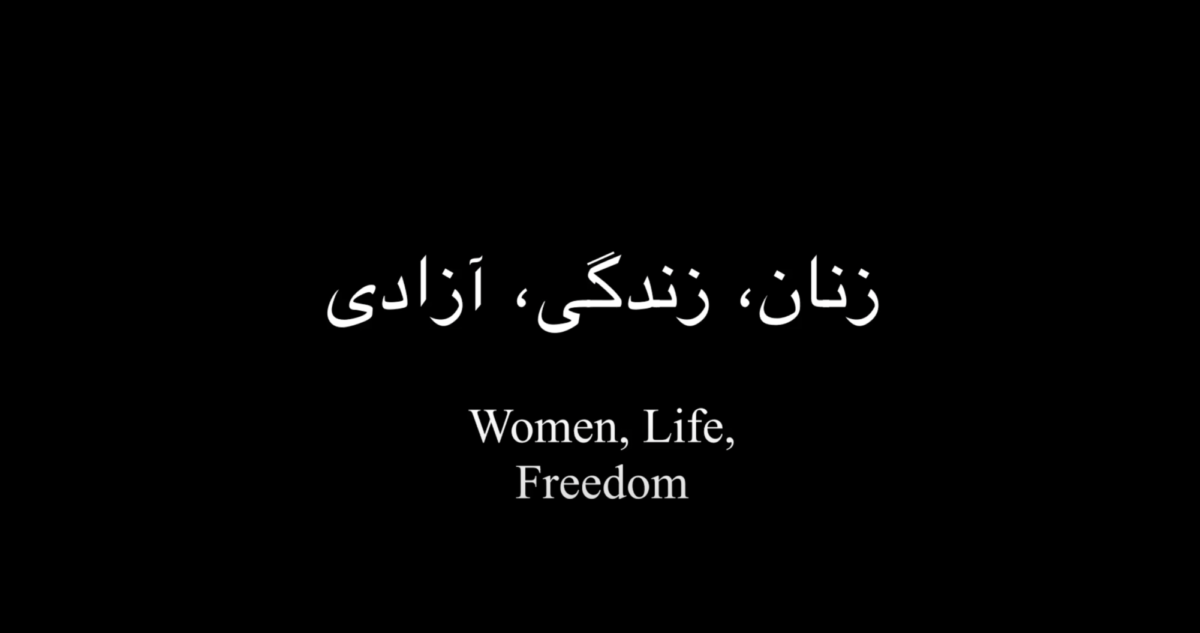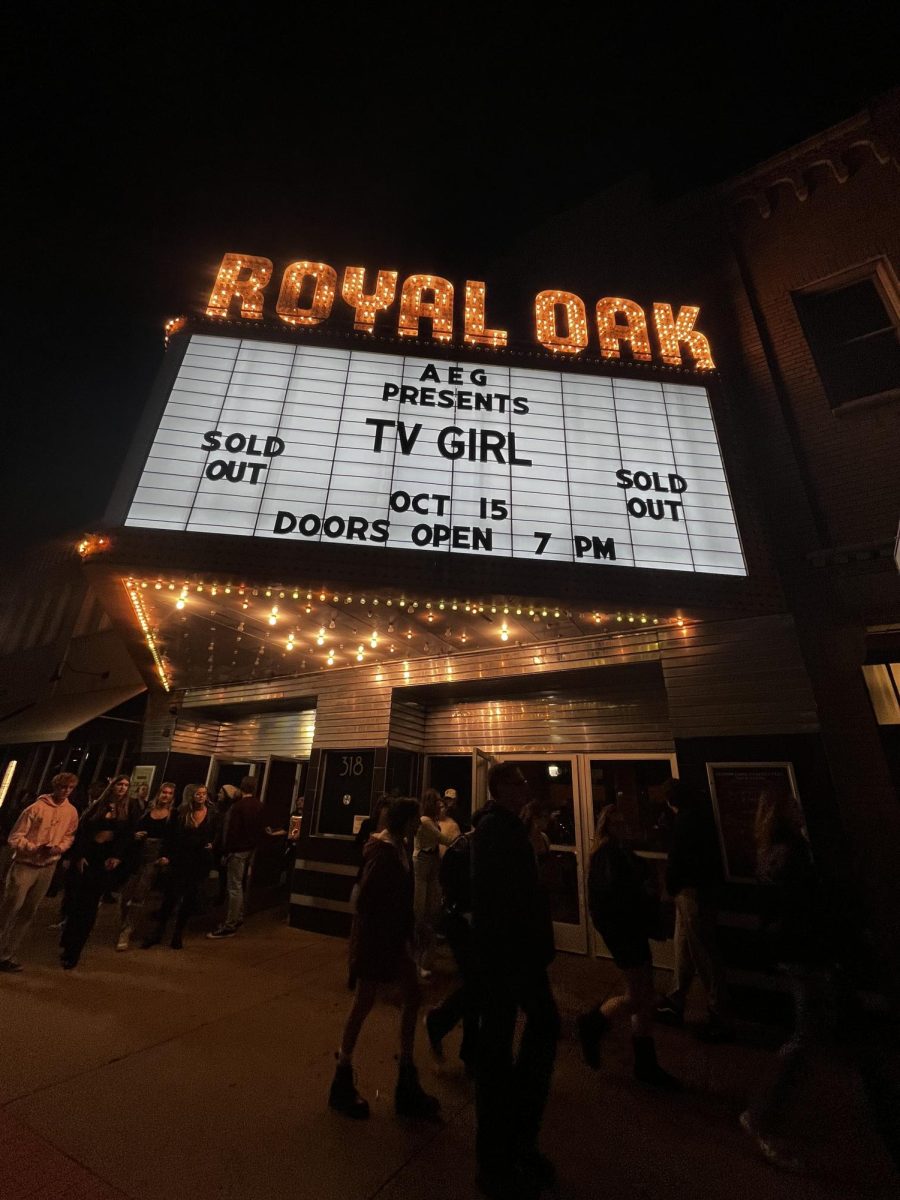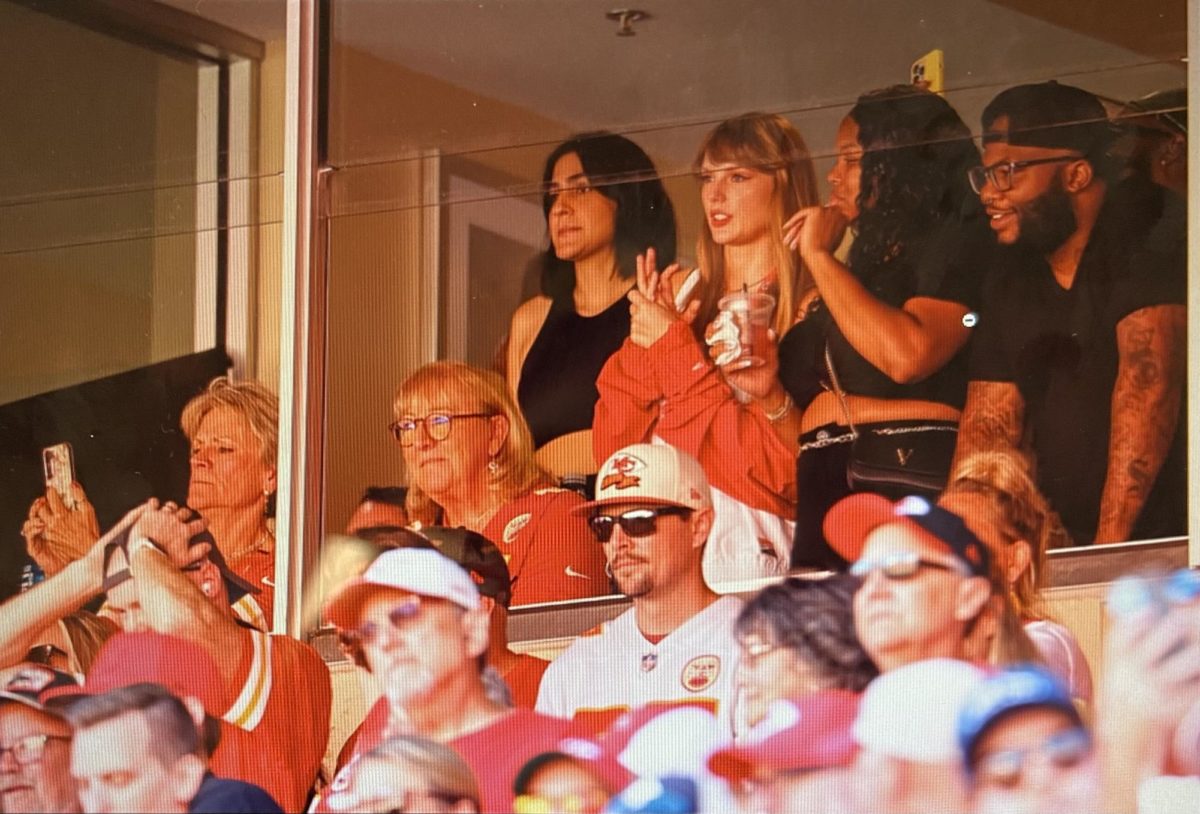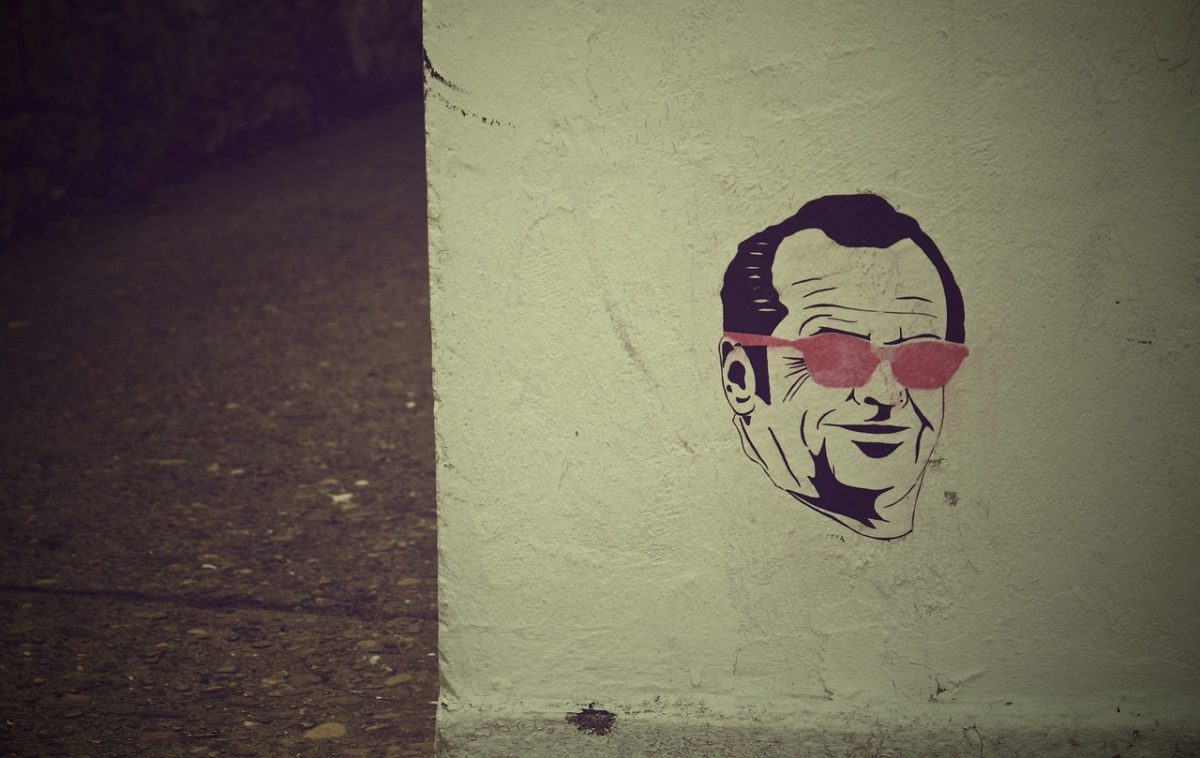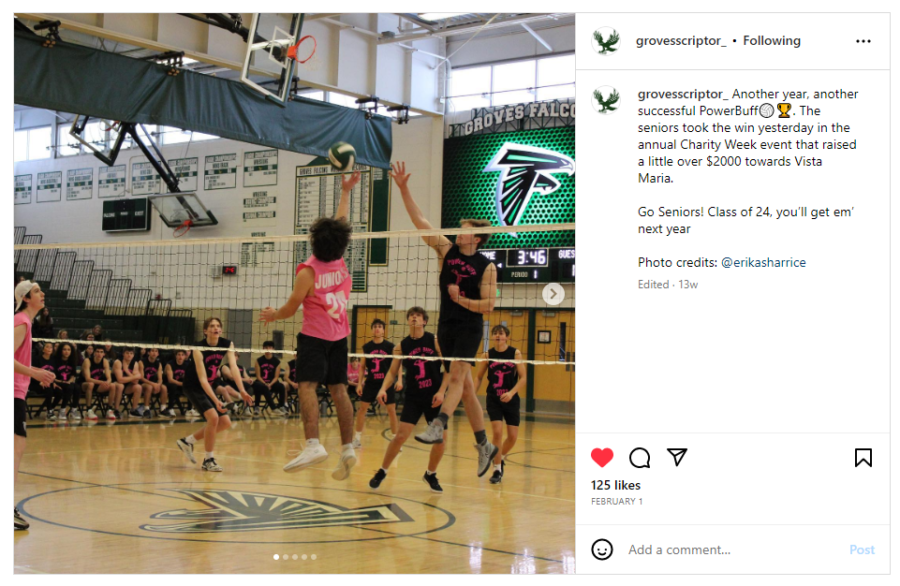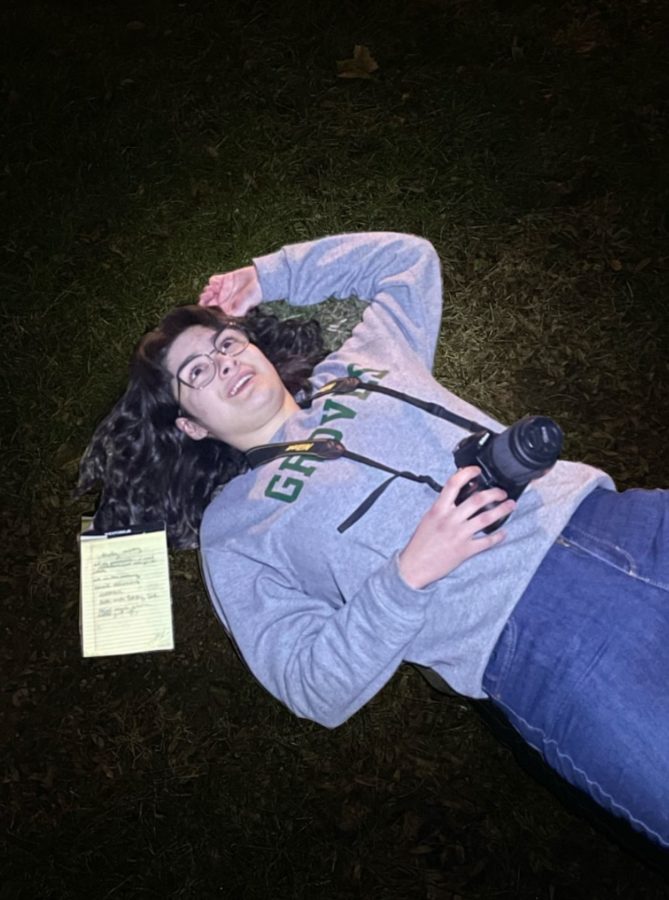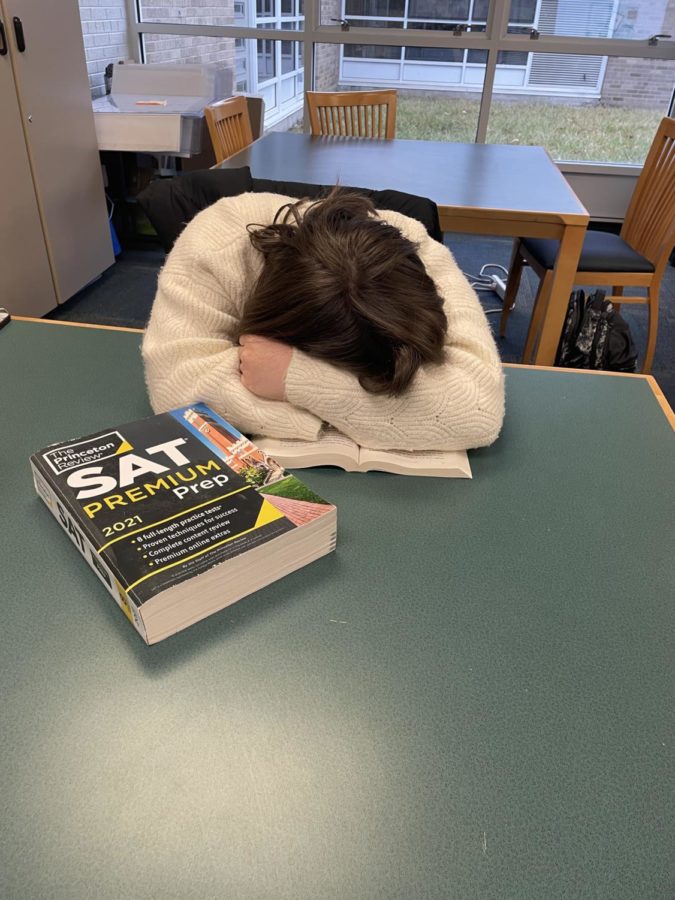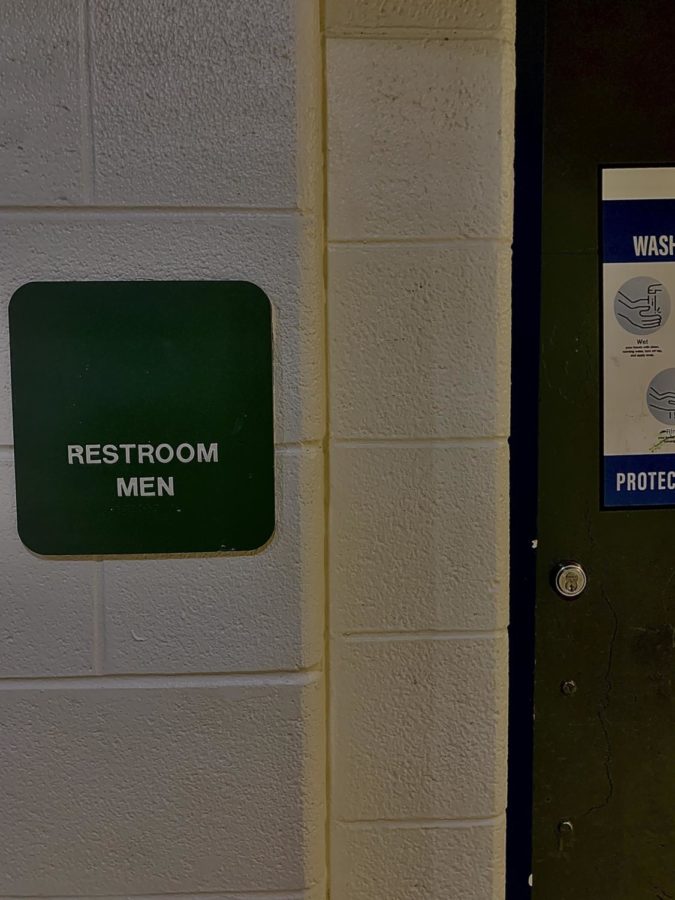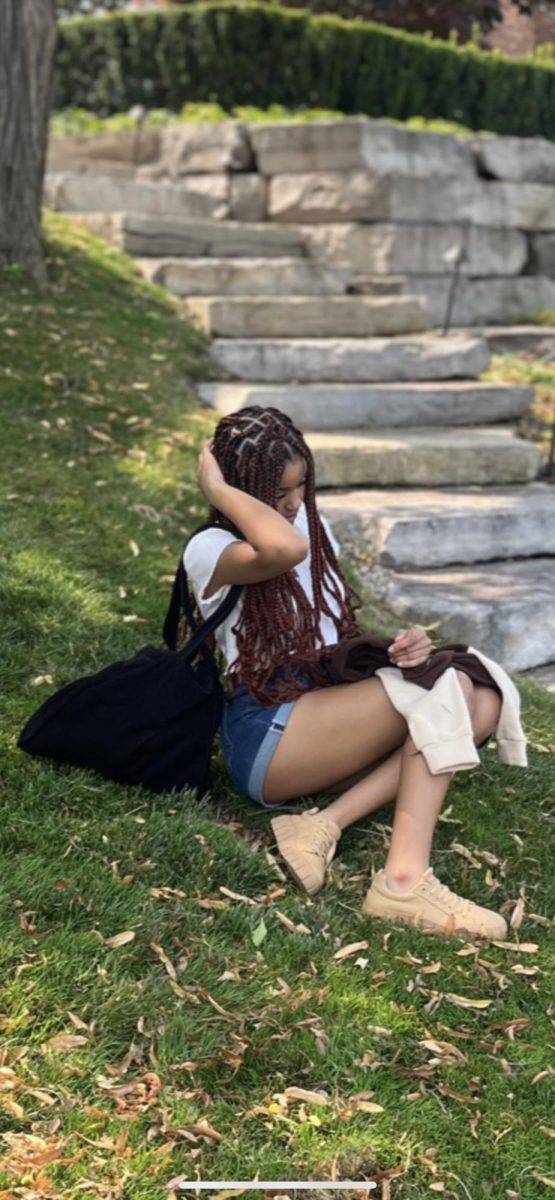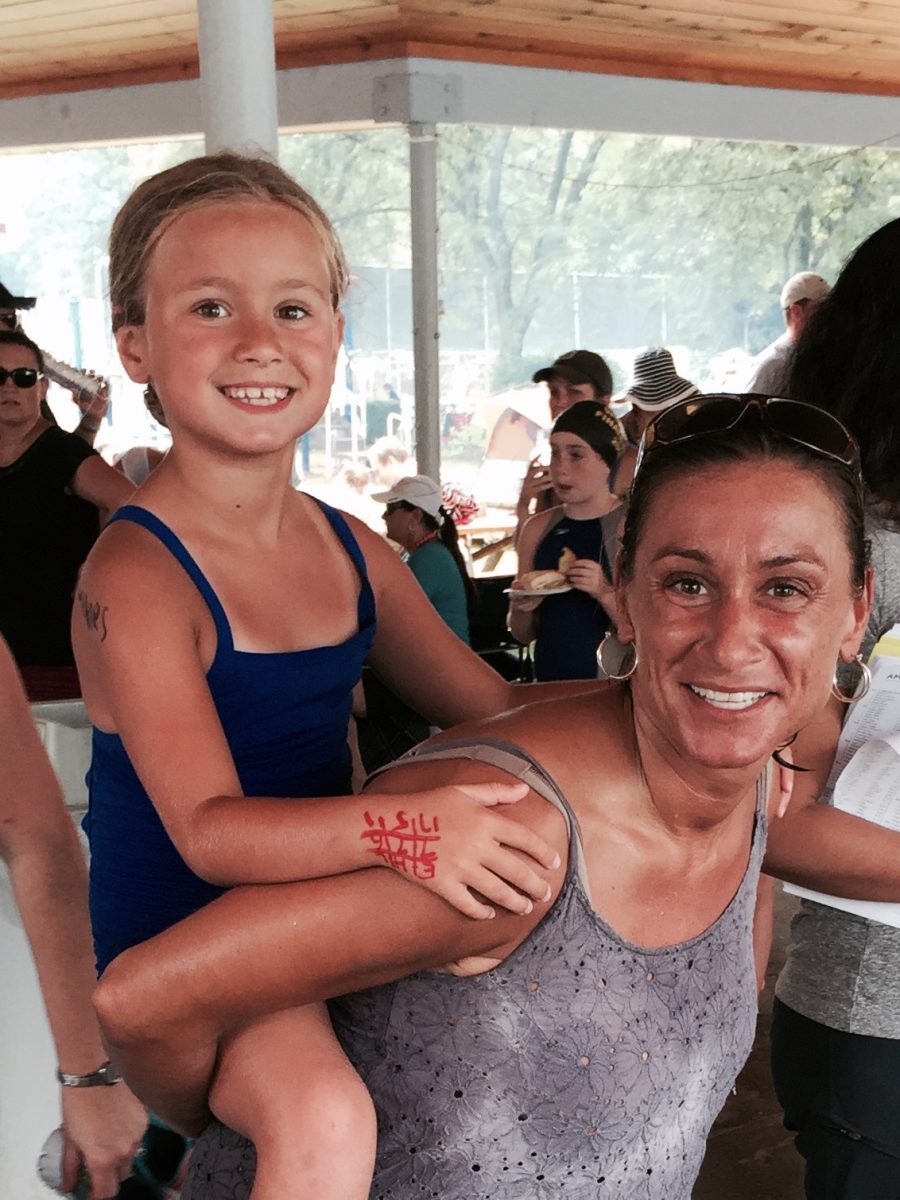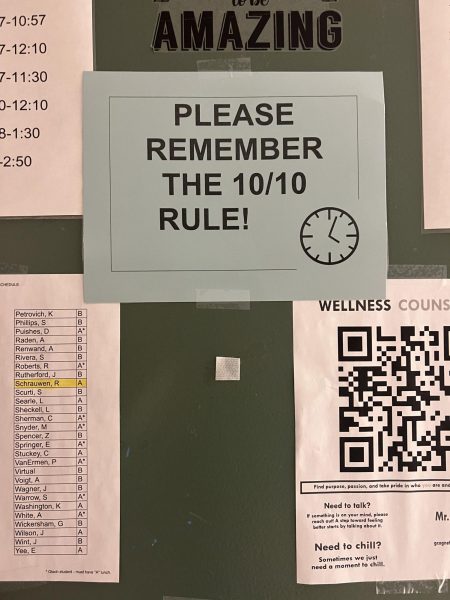Why we should break the norm of hiding our mental health issues
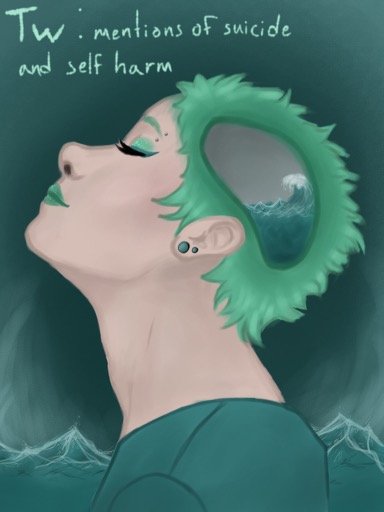
Illustration created by Kaitlyn Meeker
‘Ocean in Mind’ created by Junior, Kaitlyn Meeker on November 5, is a representation of the Mental Health Ocean present in the mind. The choice of using a Green scheme was chosen by Meeker since it is the current mental health awareness color. Before continuing with this article, there are potentially triggering topics, including, self-harm, mentions of suicide, mental illnesses, and others, so be sure to evaluate if you should proceed.
“Every day, I walk around, unable to tell what’s real and what’s not.”
“I can’t feel anything anymore, and it affects all of my relationships.”
“I’m tired all the time.”
“My mental health has taken everything from my family and me.”
These are just a few of the many responses I received on a mental health poll I sent on September 20 where I asked students about their personal experiences with mental health as well as brought some mental health disorders to light. Specifically asking, “how has mental health affected the life of you or someone you know? Please give a specific example,” and “If it was 100% free would you decide to go to therapy/counseling?” as well as many other questions. These responses confirmed my thoughts about mental health and opened my eyes to how much the students in the school are genuinely struggling, despite the efforts of well-meaning staff members. Students still feel they need to hide their mental health disorders because they feel stigmatized in our community. This poll made me realize someone had to do something to help and to show everyone that hiding wasn’t the answer.
For one of my questions, “Do you have personal experiences with mental health disorders? If yes, describe what disorder you have dealt with,” some students gave me the following responses:
“I have been struggling with depression, but I try to hide it behind a smile and pretend like everything is ok.”
“It’s completely destroyed my life. I hate pretending to be normal and acting like everything isn’t falling apart around me.”
“I’ve seen people who have it or struggle with it and try to hide”
I received 166 responses to this poll, and each one was more heartbreaking than the next. Individuals talked each other out of self-harm or suicide while others were battling depression, eating disorders, and anxiety and how to ask for help when they feel like they are so disassociated from the world.
Like many my age, I have gone through my mental health ocean. I refer to my emotions and experiences as waves because I don’t believe mental health is about reaching a destination or escaping our feelings but understanding how to be okay during both the highs and lows of its waves.
During COVID-19, I often struggled with highs and lows. I feel a common root of one’s well-being is the relationships we have. Unfortunately, during this time, my relationships were in a dangerous place. I didn’t feel safe opening up to my closest friends and the people I depended on out of a gut-wrenching fear of rejection or more pain. It made me close off to everyone. Still, a part of myself unintentionally destructs my ability to know my emotions and display how they’re affecting me. Everything ended up feeling like a challenging routine, wake up, school, nap, dinner, go to bed, repeat. The waves ended up feeling like a tsunami, and I didn’t have a support system to guide me.
I was in denial for a long time. I didn’t want to accept that something was wrong with me or that I was unwell. Somewhere in my mind, there was a system hardwired to convince everyone I was okay, even when everything was falling apart. I wanted to yell out to the world and complain about the messed-up situation I’d been dropped into, but I couldn’t: I didn’t know-how. I kept trying to find out why I didn’t say anything. I wanted someone to blame. I blamed the person I was fighting for my feelings. It was a simple excuse, but every time I tried listening to the voice yelling and criticizing me, it wasn’t theirs, it was my own.
While the fight seemed to be tearing me apart at the time, it is now just a fluctuation in my mental health ocean. The waves will keep coming, but what’s important is knowing how to balance and ride them. It’s okay to be sad and have a terrible day, week, or month; We can all take comfort in knowing that we will experience an up among every down.
The importance of the symbolism within the ocean is no matter what may come our way, the waves will continue to flow. Storms can happen and may break relationships, but the waves always rise. I would not have grown into the person I am today if I hadn’t gone through what I’ve experienced. Each wave teaches us something; while it may still hurt while we’re low, every experience helps us grow and mature into more understanding and sympathetic people, who could someday help be a support system or guide for someone who truly needs it.
We are often told to “find help” or “go to therapy” when we are struggling with our mental health, but many forget that the people we are told to reach out to have worked through some of the same mental health issues.
In all of my experiences in interviewing and learning more about the counseling side of mental health, nothing compared to the conversation with Licensed Professional Counselor, in individual and Group psychotherapy/mental health counseling for adolescents and adults, Lucy Sternberg. She was remarkably candid with me as we discussed our true thoughts on mental health.
In an interview with Sternberg, I was able to concrete my theory. She described a strong association between people who pursue careers in mental health and having first-hand difficulties among them and going through therapy themselves.
“I have had my fair share of struggles. I am grateful for the therapists I have worked beside over the years,” Sternberg said.
This just goes to show that everyone needs therapy, even therapists.
Sternberg was gaining ideas and inspiration from other successful counselors while on the journey to becoming a counselor gave her a secure idea of how she would pursue her work. Going through school and training gave her opportunities to see many other therapists and observe how they work. Stenberg adopted many of the methods she felt worked the best for her and her style of counseling.
“What I have tried to do is pick up on things that I felt were effective, or that stood out to me about how they interacted with clients,” Sternberg said.
Sternberg joined the profession because she felt it was an essential factor in her life during her youth. This led Sternberg to pursue a career in helping others have a better experience with their mental health than she had.
“I think that there is an absolute association between people who pursue these professions because they have had first-hand experience with all sorts of difficulties, and I am not excluded from that,” Sternberg said.
By developing all of these skills and techniques, Sternberg grew into the skilled counselor she is today.
I also had the opportunity to interview the Groves wellness counselor, Gregorio Cognetto; I learned how mental health had affected his life and his journey to choosing his career. Cognetto wasn’t always the self-expressive, and the sensitive person he is today. Throughout his early life, he didn’t express how he was feeling, in a moment, it all changed. It was a moment of relief where he realized he could speak openly about his feelings. Cognetto closed off all emotions from others for much of his life, so opening up to his friends and family was an entirely new concept to him. Cognetto’s new confidence was unexpected but exciting. The new wave of emotions he was now experiencing put him in a very vulnerable place but made a lasting impact on him.
“I know now whenever I have the opportunity to speak about how I’m feeling, what I’m experiencing the struggles and challenges I’m having. It still feels like a relief,” Cognetto said.
The moment to realize how truly amazing it felt to speak about his feelings, guided Cognetto to enter a career leading others to experience that same journey. He realized there are a lot of individuals out there not expressing their stories for whatever reason. He hopes it will inspire others to share and find the relief he experienced using his connections.
“I try to use my voice and my experiences to encourage other people to open up and talk,” Cognetto said.
Often, we have the misconception that counselors and therapists have perfect mental health when that simply isn’t the case. It’s always important to understand mental health workers struggle as well, and most of the time, they realize what it’s like to be in your shoes.

From my experience, both first hand and by learning from my peers, many people, especially students, feel like they’re incredibly alone in their struggle. It can be ostracizing and can create a self-inflicting fear of being abnormal and having a problem. I was able to have open and authentic conversations with Groves students about their honest struggles.
In an interview with Senior Tara Lemon, I discovered more about her independent experience with mental health. Having an open conversation about Lemons’ anxiety, I was able to get a good look into her day-to-day life. Lemon gets affected by her anxiety every single day. Every portion of her life seems to be involved. Being able to control situations gives a sense of relief to Lemon. So many unknowns shut down her ability to let herself step down and not be in total control. There’s a lot of power to control, significantly when being harmed, physically or emotionally, is a significant fear or trigger.
“I feel like I am going to lose someone as a friend; if I made a mistake, I get down on myself about that because I am afraid they are going to leave me. I like trying to control as many things in my life as I can to try to minimize the pain – the pain that I think I am going to have, even if it’s not guaranteed,” Lemon said.
Lemon had to learn a lot of things about herself, especially during covid. She noticed many hobbies and activities, which used to occupy her time and things she used to like she no longer did. It was terrifying. She had to go on a journey of re-self-discovery, and it was in the middle of a time where you couldn’t be around people and relationships weren’t like they used to be.
“I’m not motivated to do other things. I used to like to paint things for people. -It sucks because I don’t know who I am anymore. I used to like painting. And now I don’t want to do it anymore. I wondered what was going on,” Lemon said.
Senior Aaron Fryzlewicz also confided in me and described a challenging time in his life and the feelings that went along with it. He gained a very close friend to his soon-to-be step-sister during the time their parents were engaged. They shared everything, but when their parents split, so did their friendship.
“At first it was fine. Some people grew apart, but then I started thinking, did I do something for her not to want to talk to me? I started having horrible nightmares about what had happened. Whenever I’m out in public, I would keep looking around to try and find her to see if she was there,” Fryzlewicz said.
He questioned everything about the situation, eating him up inside. What could he have done differently? Does anyone genuinely like him? With his parent’s help, he realized it was likely not her choice, and he ended up reaching out to meet up, and she agreed.
“This is just a person, but over the years of not talking to her, I have just blown up the problem in my head because it just felt like this overwhelming presence in my mental health. I realized that she is just a person,” Fryzlewicz said.
Junior Kaitlyn Sanders also felt overwhelmed because she was trapped in a routine, specifically her athletics, which can be highly stressful, especially for a student with high expectations of herself. Sanders believes the title athlete is most often associated with her, which adds a specific perception of who she is supposed to be, making it challenging for her to try and become anything other than that.
“I think when you get trapped in something, and you have stuff going on yourself, and people don’t help, they just look at you like, ‘what happened to them?’” Sanders said.
Sanders has had ups and downs with athletics for a long time: harmful programs, toxic environments, and aggressive parents. There is often unsaid pressure from parents and coaches to continue when it feels impossible. So she looks forward to Sunday to calm down and debrief, but she realized she had a stack of homework from the week.
“I’ll realize I didn’t do my homework, but then I have to tell myself, ‘You have homework in every class. You’re doing AP’s; you’re doing powder puff, you’re doing basketball, you’re doing training, you’re working now, you have game. And it’s like nonstop,” Sanders said.
All my peers told me that writing about their feelings helped them. For Lemon, she enjoys writing things down to have a plan, and journaling, allowing her not to need to think about as much and feel more in control. For Frylewicz, he had an English assignment, where he vented in an essay, which let him see everything he was feeling and this writing helped her get rid of negative feelings. Finding a method to cope and deal with how we think using a technique that works for us is crucial.
That 15% of the student body responded to my poll and affirmed they experienced mental health difficulties suggests many of us need these techniques. 95% of students knew what Anxiety and Depression were, the highest out of any mental health disorder; 53% of students wanted to learn more about schizophrenia, followed by 48% with a general personality disorder; 88.6% of students rated mental health awareness an 8/10 or higher, and only 3% rated it a 3/10. 80.4% of students said, if it were entirely free, they would go to counseling/therapy.
The students who took the time to be honest in their responses often told me they felt appreciative of the anonymous place to let things out. I feel it’s time we stop trying to mask our emotions and begin to understand that frequently the people we try to hide from likely struggled once too. If we all come together to create a new normal, the scary, isolating feeling could be changed into an open, communicative environment; this can’t be done without everyone understanding they’re not alone, and they don’t have to hide.
In my poll, I gave students an opportunity to spread some kind words or advice to a fellow student who may need to hear it. These are some of those responses:
“Take charge and get what you need, like a therapist or medication. Nothing is wrong with seeking help.”
“You are valid. You and your struggles are valid as well. Take everything minute by minute and day by day.”
“Better days will always come”
“Don’t forget to breathe.”
“So that you know, you are not the only one who is struggling with mental health. We are in this together.”
“Get the help you need. Even if people don’t want you to or don’t believe you need it. get the help you need.”
“It’s not your fault, and it’s not something to be brushed off as being “weak.” If you believe that you have felt very sad or different all the time, to an abnormal point, there’s nothing wrong with telling your doctor and seeking help. It’s not a weakness; your brain is just biologically wired that way.”
“You are strong because today you chose life”
Your donation will support the student journalists of Wylie E. Groves High School. Your contribution will allow us to purchase equipment and cover our annual website hosting costs.








